
Willbe Going topresent Continuous Activities
Going to Vs. Present continuous Use Case 1. When talking about intentions or decisions about the future that were made some time before - we use 'going to' or the present continuous: Penny is going to move back to Nebraska. (going to - reporting an intention) Penny is moving back to Nebraska. (present continuous - reporting an intention)

Will Be Going To Present Continuous Liveworksheets
In this English grammar class, I'll explain when and how to use these two easy ways to talk about future events, activities, and plans. You will learn all about structure, usage, spelling, pronunciation, questions, short answers, contractions, regular verbs, stative verbs, common errors, and more. We'll also do lots of practice together, so.
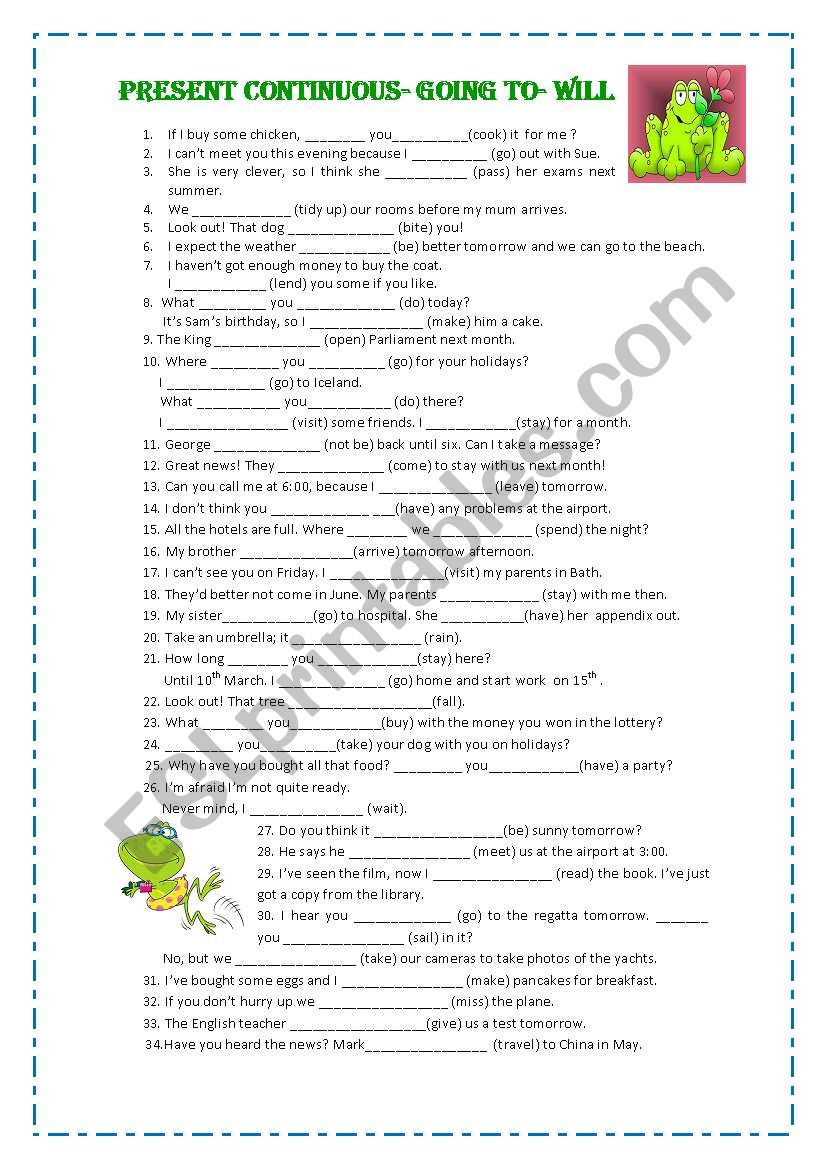
Will Going To Present Continuous Exercises
1/2 Grammar guide with examples on the use of will, be + going to, present continuous and present simple to express future actions or events with several exercises.…

Be going to vs Present continuous English In A Minute YouTube
BE GOING TO and present continuous for future plans: Be going to refers to future intentions that have been decided but have not been fully planned: We're going to get married. (referring to a past decision) The present continuous tense refers to fixed future events and emphasizes that plans or arrangements have already been made:
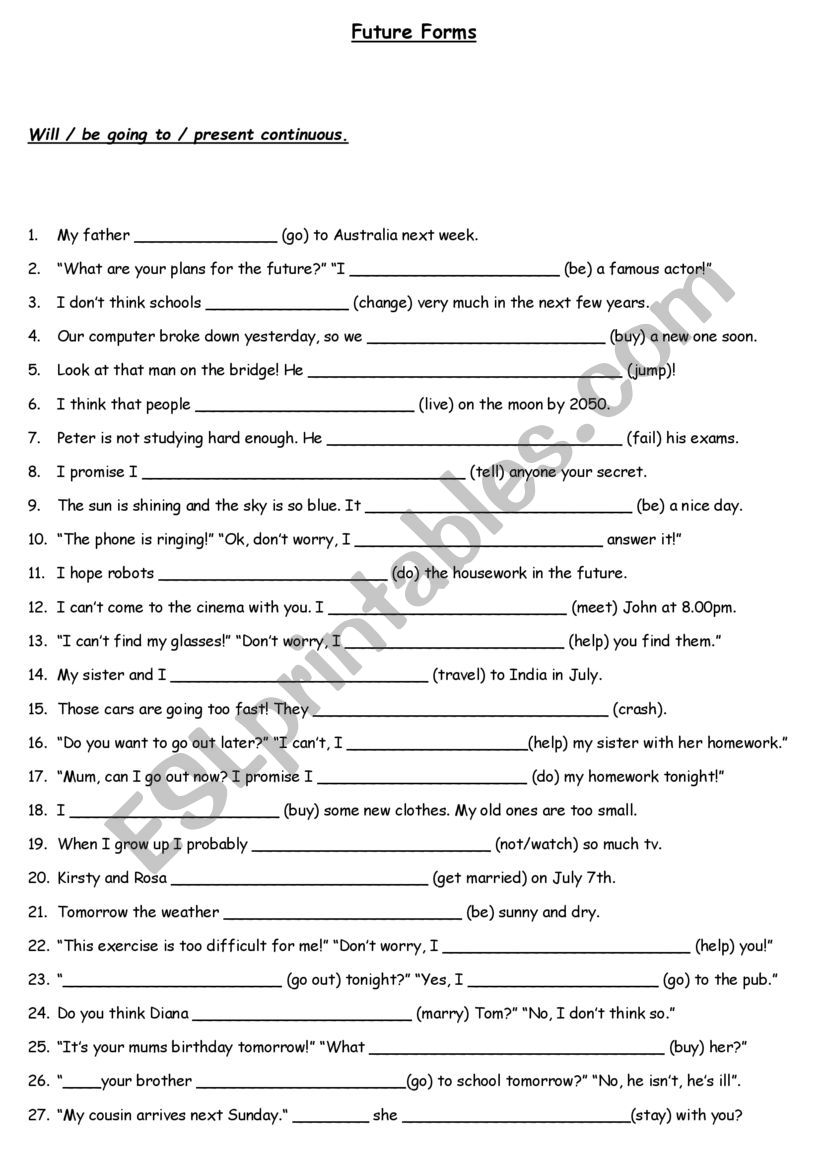
Future will, going to, present continuous ESL worksheet by teachkirst
Are you unsure about how to talk about the future in English?In this video we compare three common future forms: will, going to and the present continuous We.
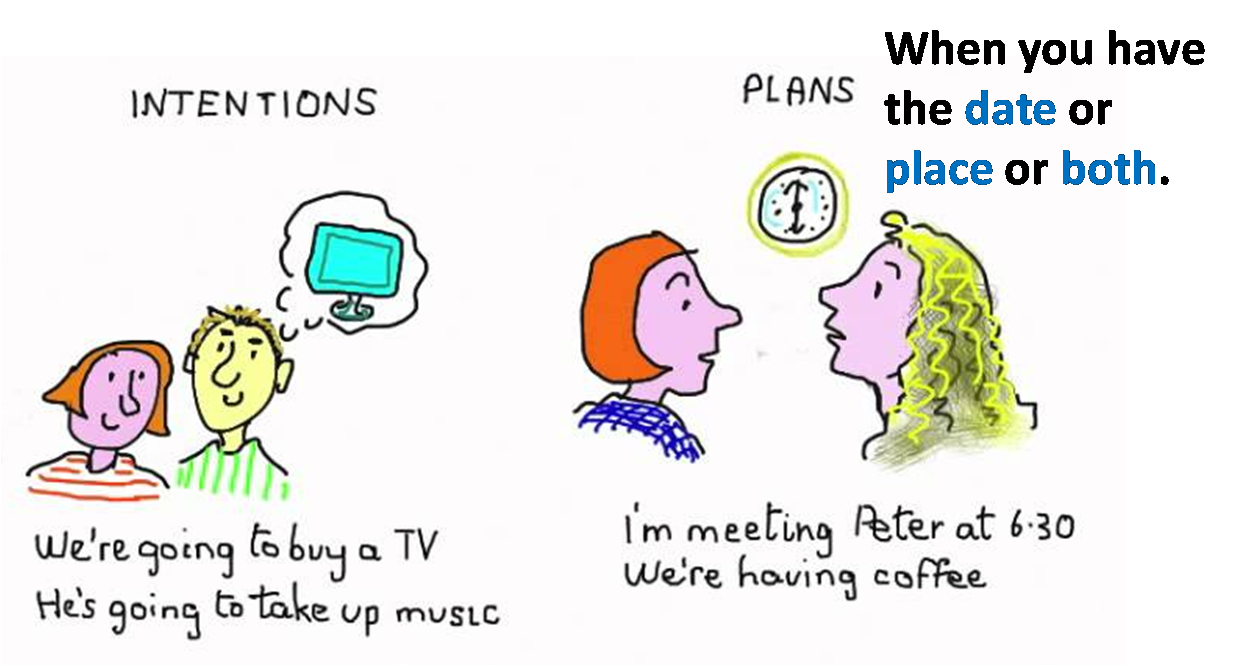
BASIC ENGLISH II U4 Going to Vs. Present continuous
Future forms (will, be going to, Present Continuous) — Exercise 1 Complete the sentences with the correct future form ( will, be going to, or Present Continuous ). Show example 1. We to Madrid on Monday. (go) 2. Mark's mother believes that he famous. (be) 3. Look at those clouds! It soon. (rain) 4. I hope you after the party. (stay) 5.
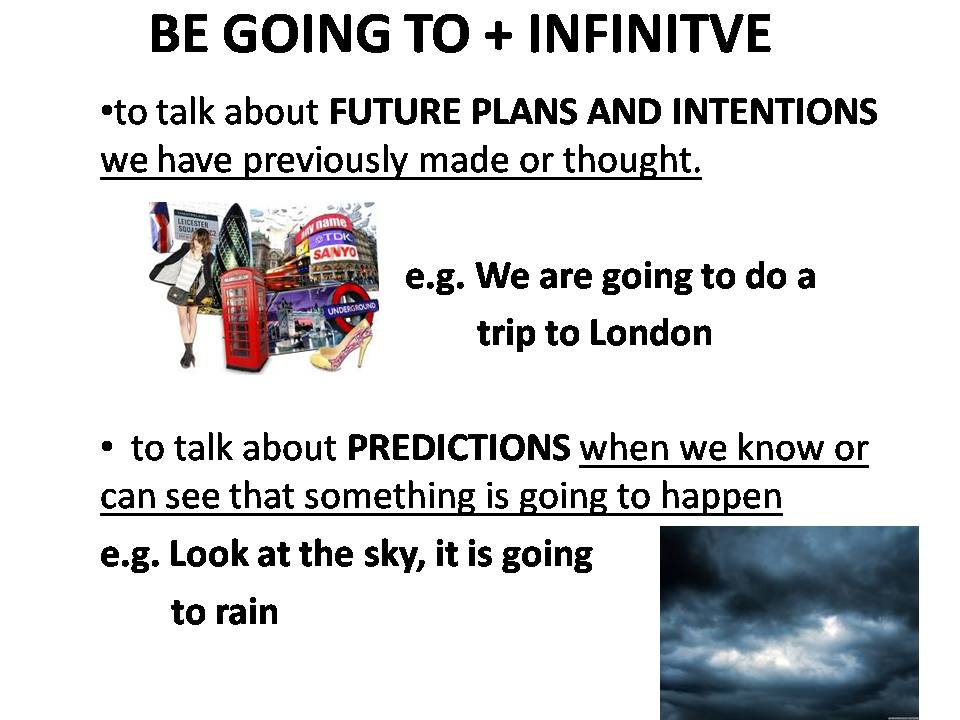
Future forms «Be going to» and present continuous Road to English A2
PDF exercises to download for free: Will, going to, present continuous PDF exercise 1. Key with answers 1. Use verbs in brackets to complete sentences. Will, going to, present continuous PDF exercise 2. Key with answers 2. Three parts, each practising a different form.
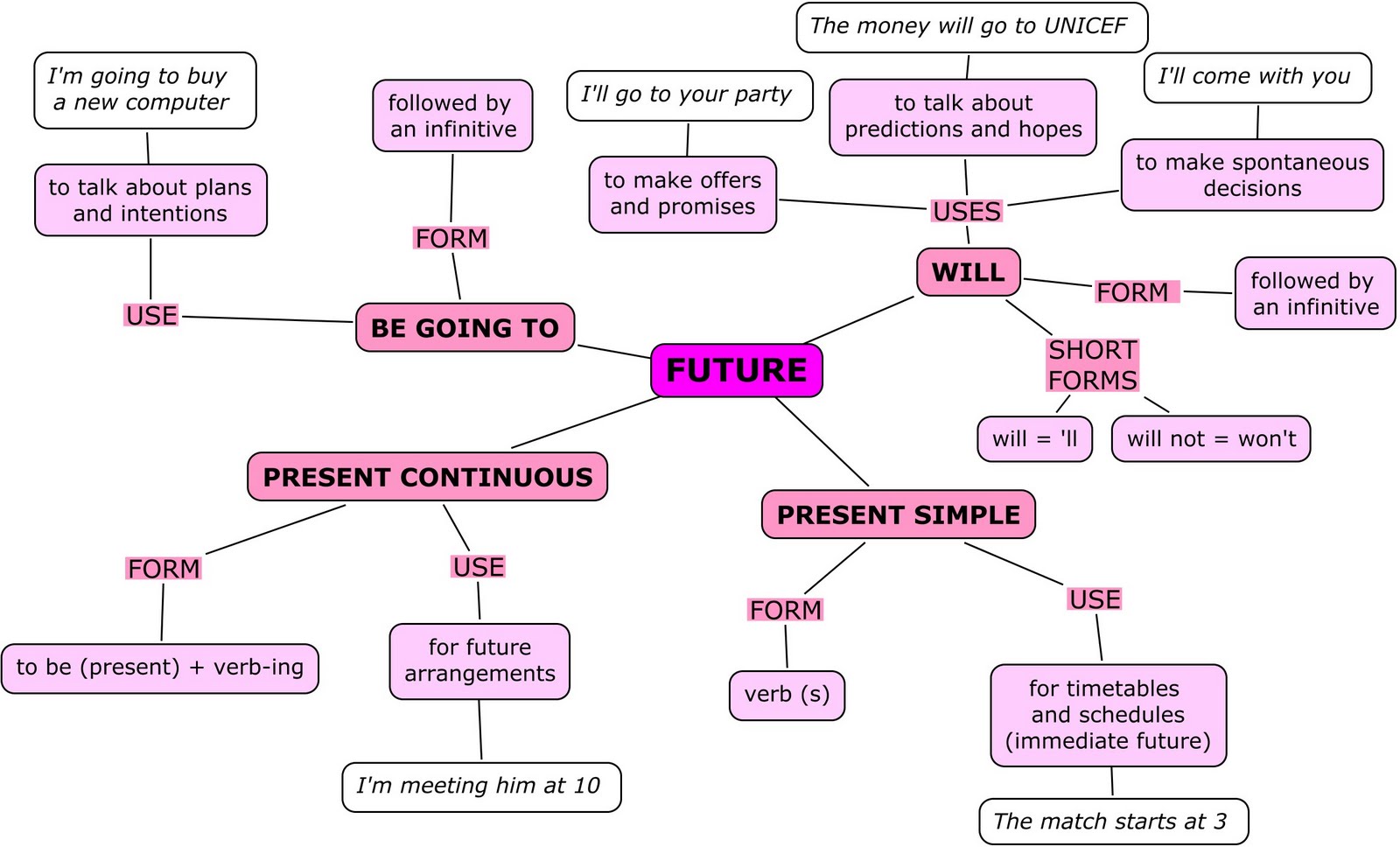
Soraya Moreno's Blog FUTURE FORMS GOING TO, PRESENT CONTINUOUS, WILL
Grammar test 1 Grammar explanation We use different verb forms to talk about our plans for the future, depending on what kind of plan it is: a spontaneous plan, a pre-decided plan or an arrangement. will We use will to talk about spontaneous plans decided at the moment of speaking. Oops, I forgot to phone Mum! I'll do it after dinner.
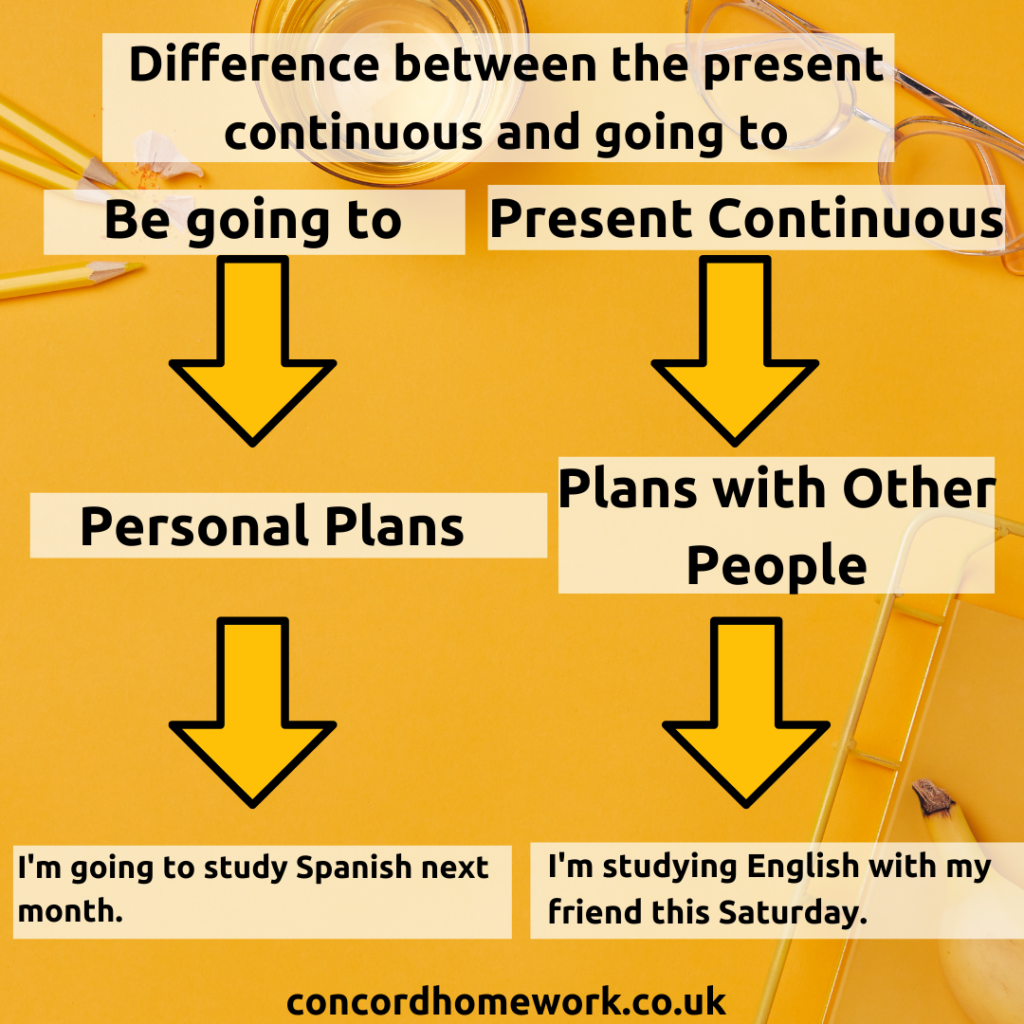
Difference Between Present Continuous vs Going to Exercise pdf ConcordHomework
So, present continuous, going to and will are all used to talk about future plans BUT they have a slightly different meaning. Present continuous - is used when we have an arrangement. Maybe you have bought tickets already. For example: I'm flying to New York on Friday. OR you have made the plan with someone else: I'm meeting my friend for coffee.

Language Tools Will, going to, present continuous
Will, going to, present continuous - 3 English future forms Watch on Click here to learn some phrases we use to talk about the future. Click here to learn about some verbs we often use to talk about the future. Will, going to and the present continuous We had a request from a viewer for this video.

Will, going to and the present continuous 3 common future forms
Perfect English Grammar What's the difference? 'Will' and 'be going to' More examples: (The phone rings) Julie: I 'll get it! ('I'm going to get it' is very strange, because it makes us think that Julie knew the phone was going to ring before it did). I 'm going to go on holiday next week.
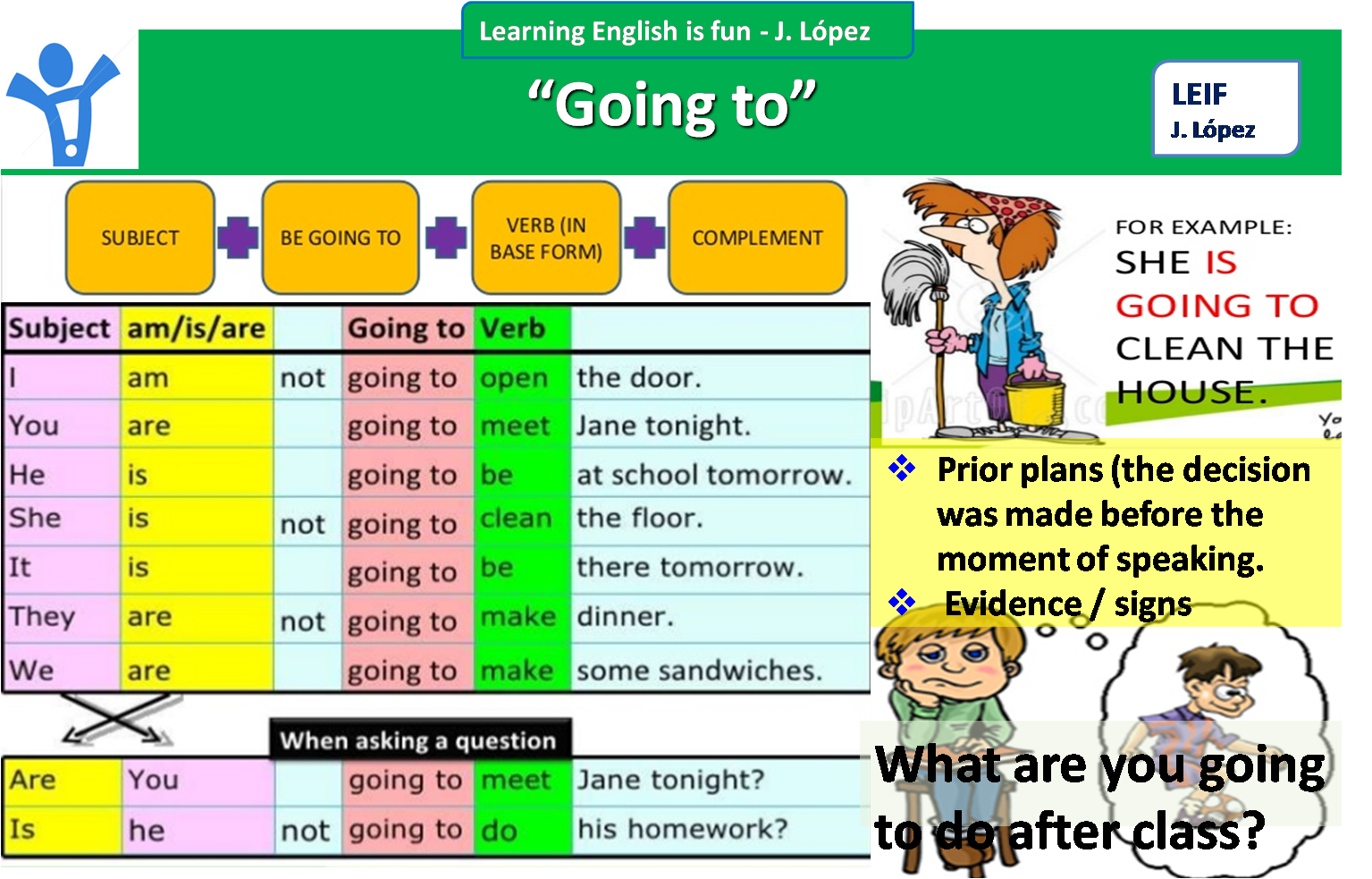
English Intermediate I U6Will, going to, simple present and present continuous
Be going to refers to future intentions that have been decided but have not been fully planned: We're going to get married. (referring to a past decision) The present continuous tense refers to fixed future events and emphasises that plans or arrangements have already been made:
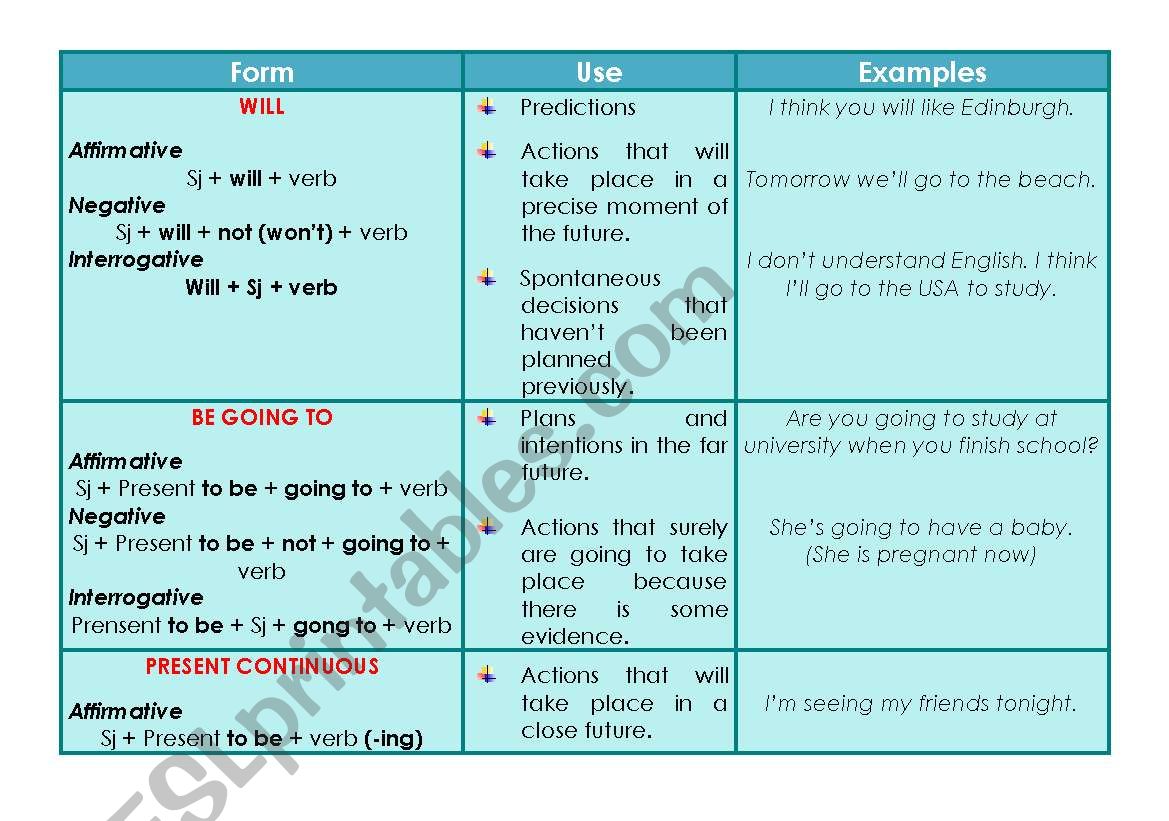
Future (will, be going to, present continuous) ESL worksheet by ^Princesa^
Talking about the future. In English, we can use will, be going to, the present simple or present continuous tenses, phrases like about to, and verbs like aim and plan - all to talk about the.

English Intermediate I U6Will, going to, simple present and present continuous
(It is possible.) She will get that job. He will marry her. The simple future tense is also used to announce decisions that are quickly made at the moment of speaking. 'I'm hungry' 'OK. I will get you something to eat.' (Here the second speaker uses the simple future tense to announce a spontaneous decision.)
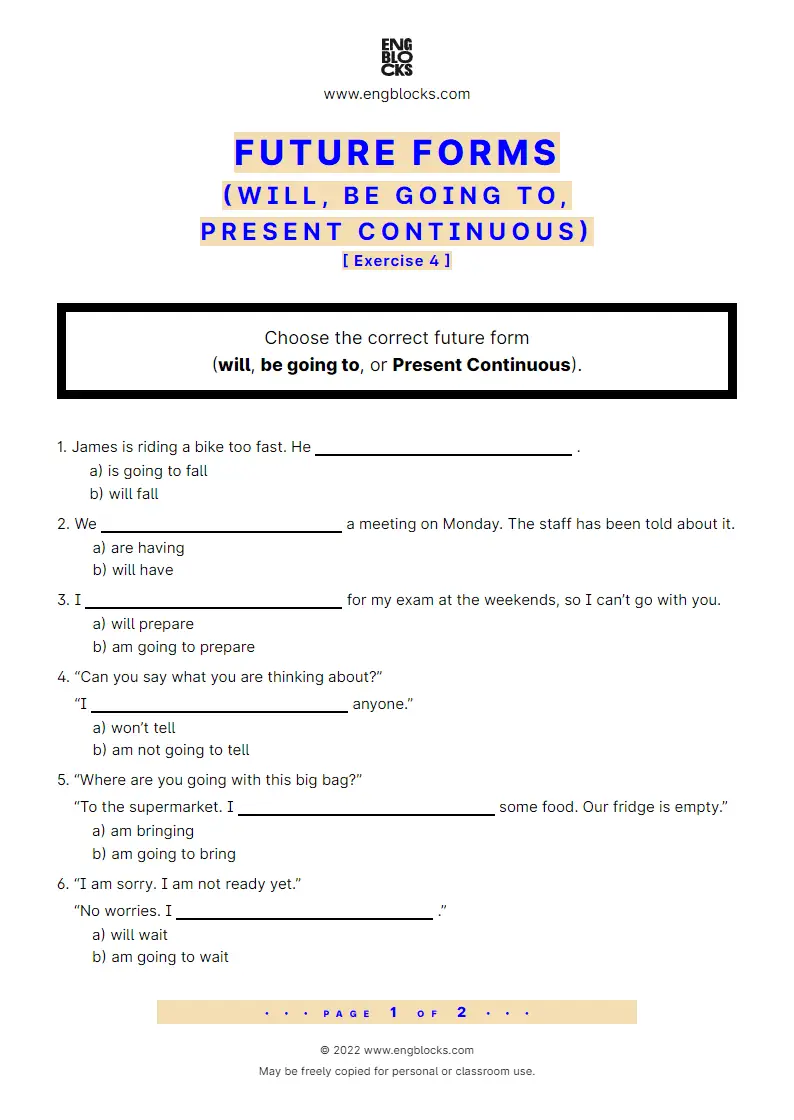
Future forms (will, be going to, Present Continuous) Exercise 3 Worksheet English Grammar
Instructions Connection Error Transcript We have different ways of talking about the future. We often use going to (+ infinitive), the present continuous (to be + -ing) or will (+ infinitive). The structure we use depends on the function of what we want to say, whether we are talking about arrangements, plans, predictions, etc..
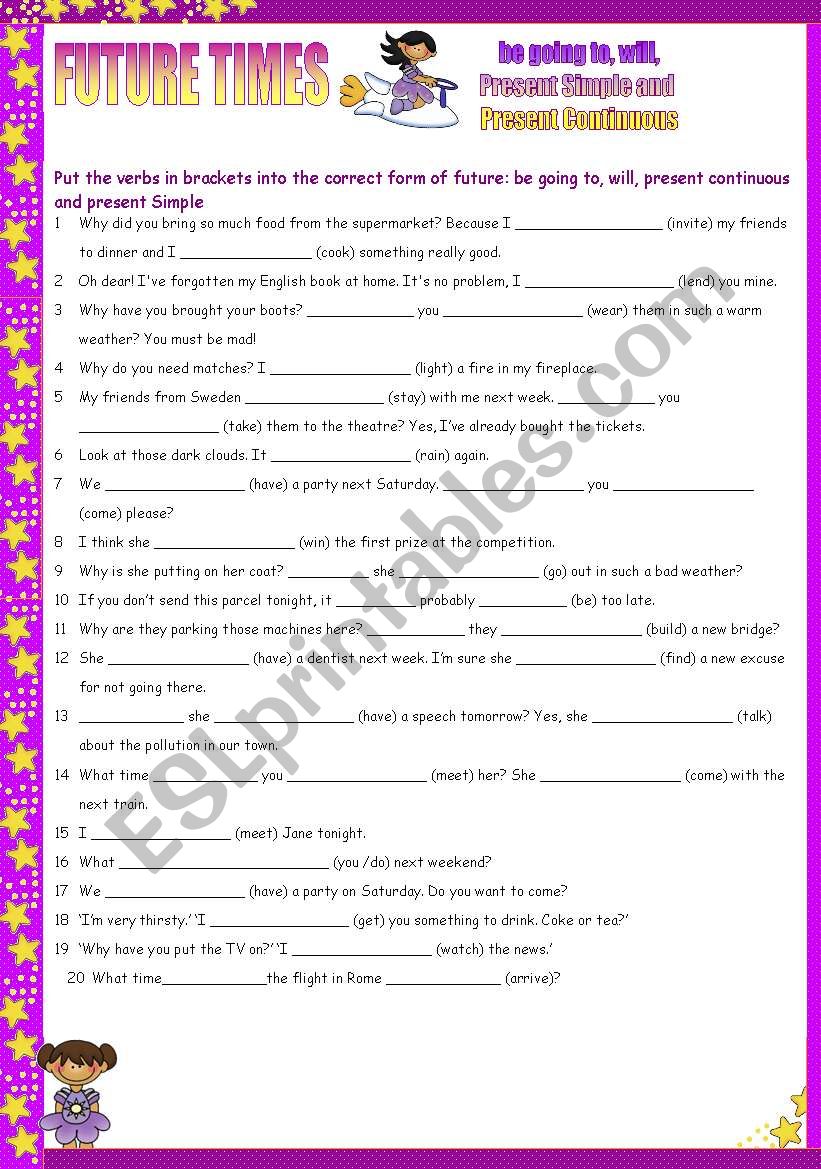
Future Times Be Going To Will Present Simple And Present Continuous Hot Sex Picture
a. Are you going to open b. Will you open c. Do you open 5 I don't think I ______ come tomorrow. a. 'm being able to b. am able to c. will be able to Exercises: 1 2 3 Future forms - will, be going to, present continuous, etc. English intermediate grammar exercises. Predictions, offers, promises, plans, arrangements, etc.